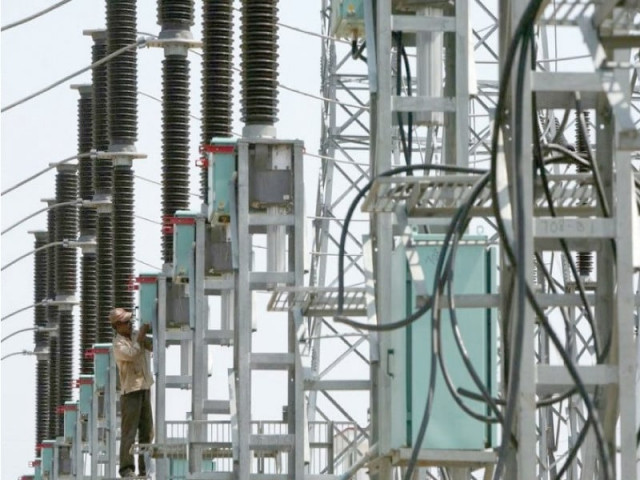DISCOs: govt to adopt Turkish model
Decides to outsource management to slash losses, draw investment

Pakistan has decided to follow the Turkish model through outsourcing the management of power distribution companies (DISCOs) in an attempt to reduce losses, bring efficiency and attract investment.
To adopt the Turkish model, the government of Pakistan has agreed with the International Monetary Fund (IMF) that it will engage a transaction adviser for long-term concessions by the end of April 2024. The World Bank has offered a grant-based technical assistance and risk guarantee instruments, which give greater confidence to the prospective private concession holders and their lenders. The International Finance Corporation has expressed interest in providing transaction advisory services.
Sources revealed that policymakers were informed in a recent meeting of the Cabinet Committee on Privatisation (CCOP) that a long-term concession model had delivered the benefits of private sector participation in Turkey, Argentina, Brazil, Uganda and other countries. Policymakers noted that under such concessions, Turkey’s 20 DISCOs attracted a much larger private sector investment than under the public sector, ensured much better service quality for consumers and reduced losses by one-third in a decade.
The meeting was informed that Turkey secured the jobs of most of the staff of DISCOs for the first five years along with only 3-5% long-term increase in tariffs.
Pakistan’s policymakers noted that a similar experience was required to be followed in Pakistan whereby the government would agree with concession holders on a gradual reduction in liabilities through loss reduction without a significant increase in tariffs.
They said that DISCOs would then secure a much better value from privatisation. There was unanimity of views among the policymakers that the handing over of DISCOs to provincial governments was unlikely to result in the required strategic shift.
Furthermore, provincial authorities had laid a number of conditions for taking over the ownership of DISCOs, which may not be supportive of efforts to improve their operational performance and may delay the process further.
There was consensus that privatisation was the best solution. However, the policymakers stated that the sale of government assets had often come under legal and political pressure on account of valuation of assets. Any sale of assets at throwaway prices had the potential to derail the entire process.
Read Revamping DISCOs
In addition, legacy issues about the ownership of assets (DISCOs vs Wapda) still existed and had been a major hurdle in the way of privatisation.
The Power Division was of the view that the concession model would bring the desired results. It was proposed that initially two smaller DISCOs, the better-performing Gujranwala Electric Power Company (Gepco) and the poor-performing Hyderabad Electric Supply Company (Hesco), may be earmarked. The Power Division told the meeting that the power sector’s longstanding difficulties stemmed primarily from the operational performance of 10 DISCOs.
The key challenges faced by DISCOs included poor governance and inadequate investment. Therefore, they were placed on the active privatisation list but the process could not move forward.
During the tenure of the previous government, a committee was constituted for the transfer of DISCOs to provinces. The committee submitted its report to the then prime minister, who gave the directive that the summary may be placed before the new cabinet.
During a meeting of the executive committee of the Special Investment Facilitation Council (SIFC), held on September 26-27, 2023, the minister of privatisation called for taking an appropriate course for transferring the management of DISCOs to the private sector.
The SIFC apex committee, during a meeting on October 4, 2023, agreed with the proposal and decided that the recommendation of the privatisation minister about private sector participation in the management of DISCOs, including management contracts/ outsourcing, should be approved.
A summary will be moved to the cabinet to revive its earlier decision on private sector participation and withdraw the proposal of “provincialisation”.
It was observed that the concession model/ outsourcing would be discussed and a firm proposal would be presented by the energy minister and the privatisation minister in the next CCOP huddle.
The Power Division revealed that to come up with a workable solution to introduce a private sector-oriented culture of governance and management, modern expertise, information and communication technology and attract adequate investment in DISCOs, extensive consultations were held with the relevant entities and international financial institutions to develop a model for private sector participation in line with Pakistan’s ground realities.
The CCOP observed that the case relating to private sector participation in the operation of DISCOs through long-term concession contracts fell within the domain of the Privatisation Commission rather than the Power Division. Therefore, the matter should be dealt with by the Privatisation Commission.
Published in The Express Tribune, February 28th, 2024.
Like Business on Facebook, follow @TribuneBiz on Twitter to stay informed and join in the conversation.



















COMMENTS
Comments are moderated and generally will be posted if they are on-topic and not abusive.
For more information, please see our Comments FAQ